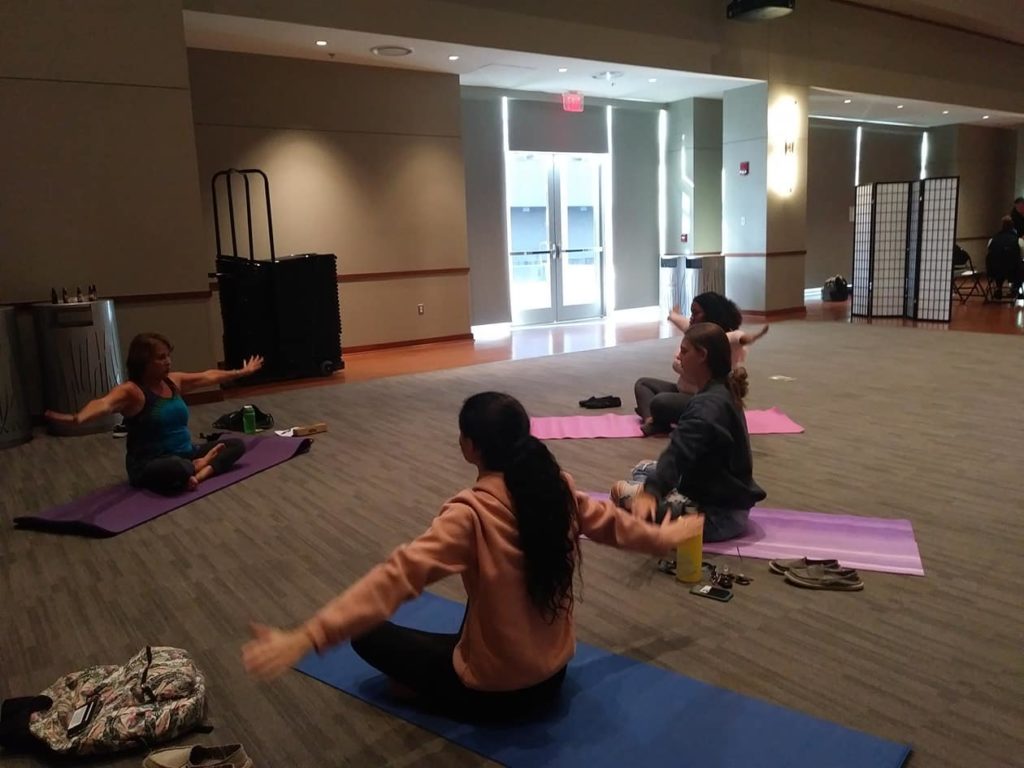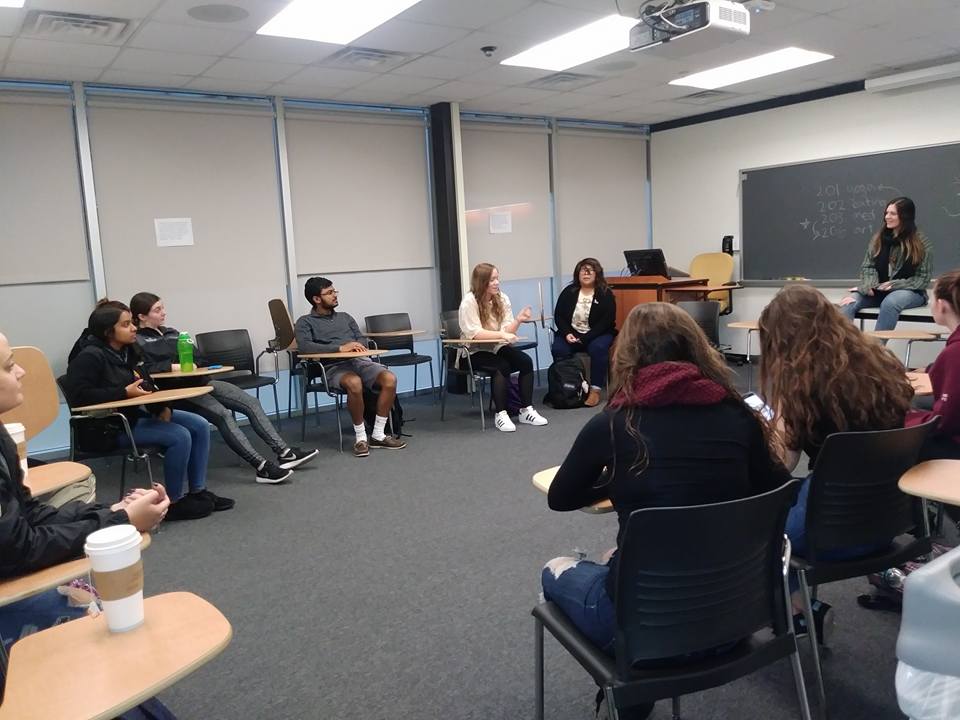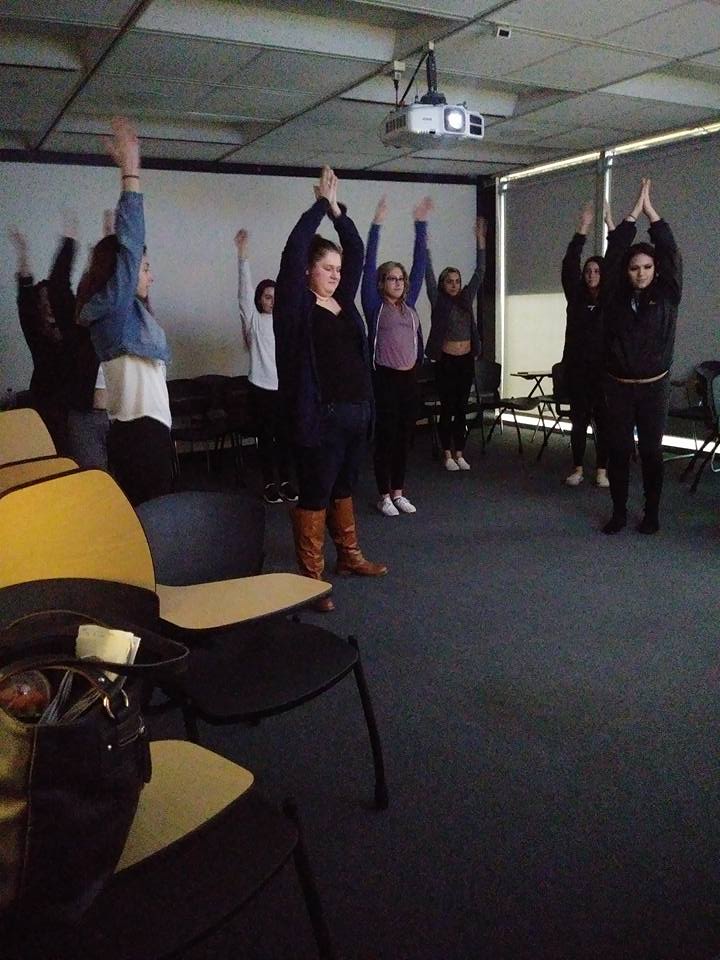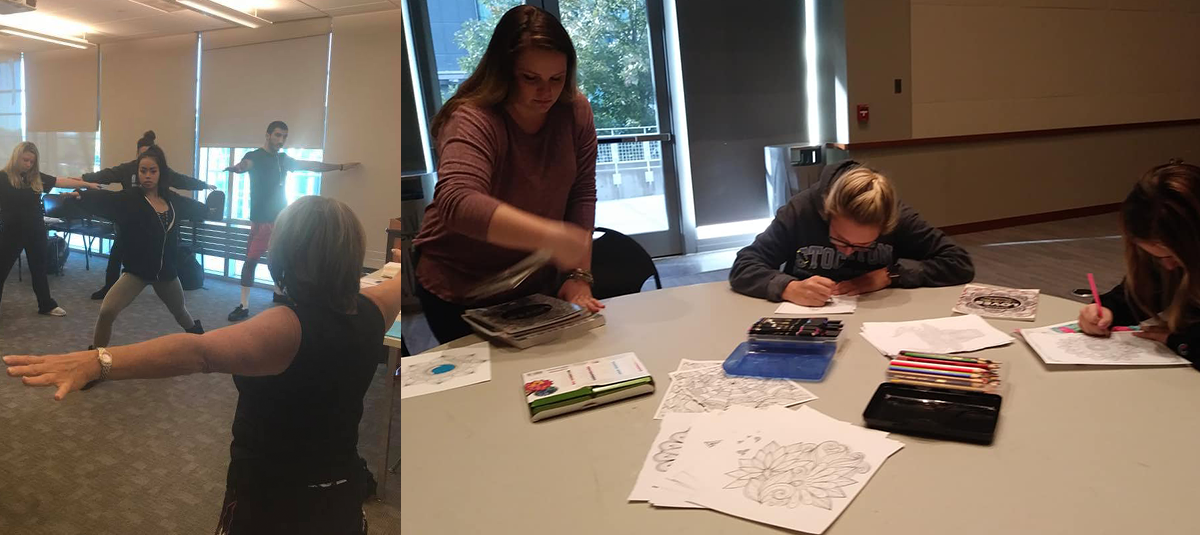Coping Skills Workshop for Suicide Prevention Awareness and Disordered Eating Awareness and Prevention. A workshop to learn 5 new positive coping skills in 1 hour.

What was your budget for this activity?
This event did not cost our chapter any money because we used supplies we already had, such as crayons and online coloring pages, but also the talented, supportive volunteers in our community. We asked volunteers, who know skills such as yoga or meditation, to present in this workshop. Chapters should use the resources they already have, so that students are more likely to have the ability to implement what they learned at the workshop in their day-to-day routines.
Tell us how your chapter planned this event —
In our fall planning meetings we were thinking of how to implement a coping skills workshop. There were many different ideas on how to implement the workshop, but together as a team, the idea was finalized. We decided to have 5 stations of teachers who would show everyone different and new coping skill ideas. Our goal of the event was to make sure that everyone walked away with at least one new activity that they liked and to make sure the activities were simple and easy to learn. Last fall, for suicide prevention, we had yoga, music therapy, breathing exercises and a discussion on dialectical behavior therapy (DBT).
The event for that fall was successful, so we looked to see how we could fit it into our disordered eating awareness and prevention events for the spring. We made the event fit into disordered eating awareness by switching out DBT and having a mindful eating demonstration in its place. In addition to mindful eating, we held a rotation on creative self expression, meditation, and yoga.
This Coping Skills Workshop event is one of several positive mental health events that we hold at Stockton. We want people to learn about mental health and how to take care of it before it becomes a crisis. With the Coping Skills Workshop, students will have been exposed to 5 new ideas on how to manage emotions on their own, which are powerful tools for anyone to have.

What are your top tips for people who might want to do this activity?
- Always have separate rooms or one large enough room for each activity. Having separate rooms for each event turned out to be necessary. We weren’t anticipating the amount of people who would attend and the space that was needed to hold the different groups. In the past year, we had 5 separate classrooms all next to each other, but this fall we are trying out our event room, so that we do not have to rotate people to all the different classrooms.
- Always break up those who attend the event into smaller groups. Have them count off by 5, so that the groups are nearly equal and so everyone gets the opportunity to experience all the groups on the rotation.
- Don’t have the groups spend longer than 15 to 20 minutes on one activity. The point of the event is to introduce several coping skills to everyone, so that they can learn what works best for them. Not everyone is going to like each activity, but hopefully everyone will walk away with at least one new coping skill to use.
- Try varying the activities to fit the awareness your chapter is trying to promote. In the spring, we implemented a group rotation of learning about mindful eating for disordered eating awareness and prevention. Where in the fall, for suicide prevention, we had a rotation of how to learn dialectical behavioral therapy (DBT) skills.
- Try having a chapter leader time the groups, so that everyone moves and ends at the same time. We would then lead the groups to their next workshop rotation. We have thought of having the teachers move and not the students in the groups, but certain rooms are set up specifically for certain activities.
Anything else you’d like to tell us about this activity?
The Coping Skills Workshop is a lot of fun to plan and experience. If another chapter was looking to have an event like this I would say to look for activities that fit to your school’s personality. Many of Stockton’s chapter events are based from creative arts expression. If your school doesn’t have a large interest in those kinds of activities change the workshop to fit it, so more students want to attend and learn from the event.





